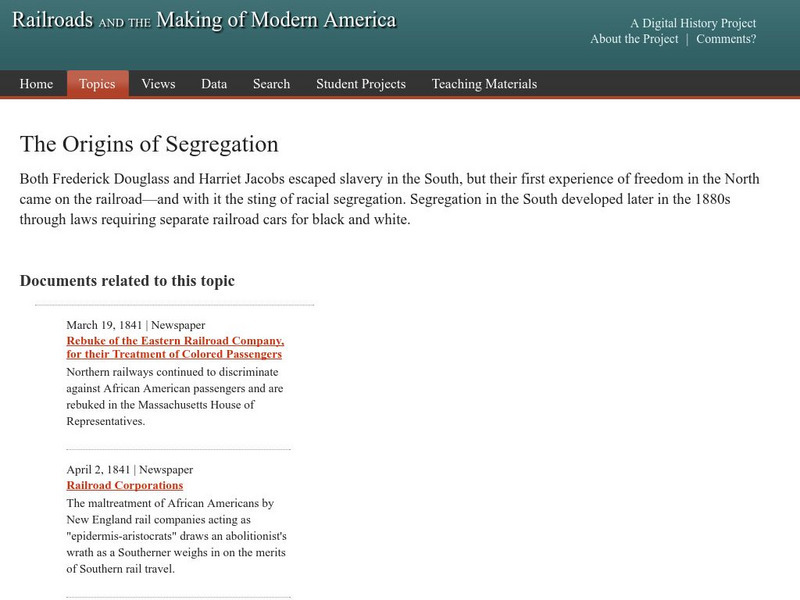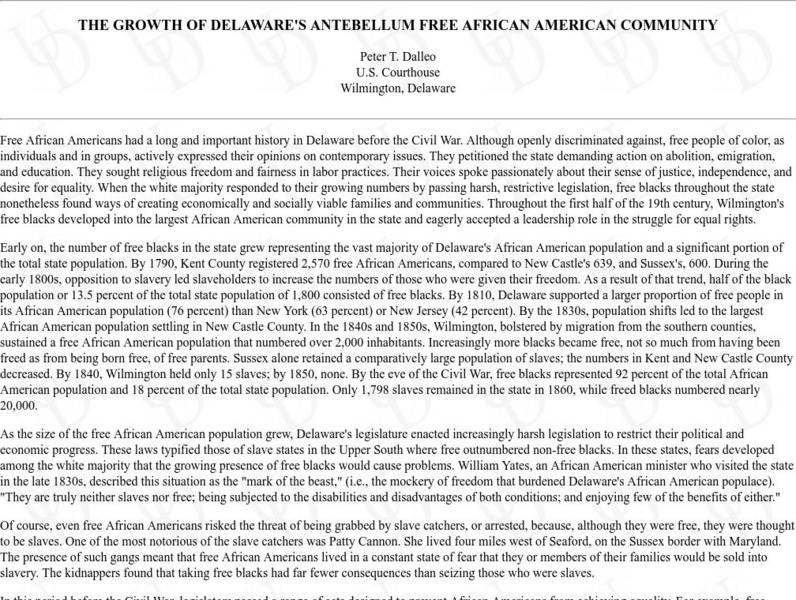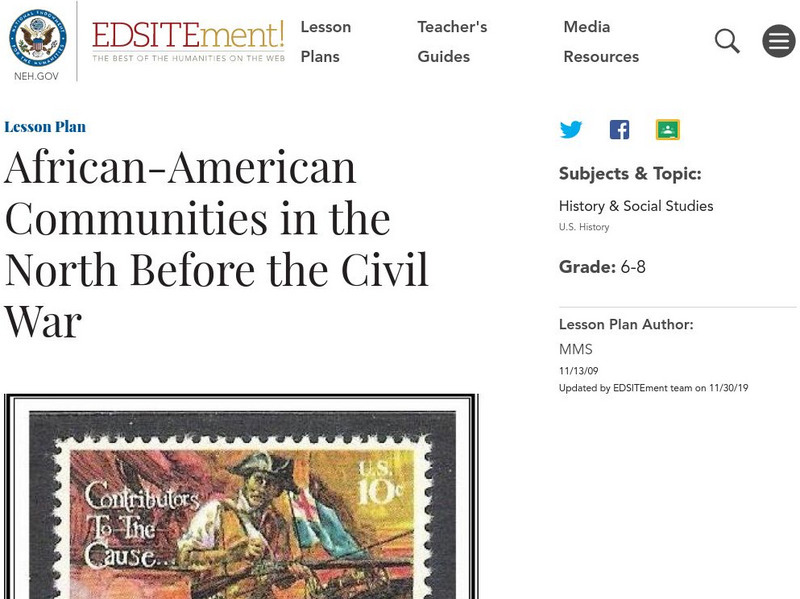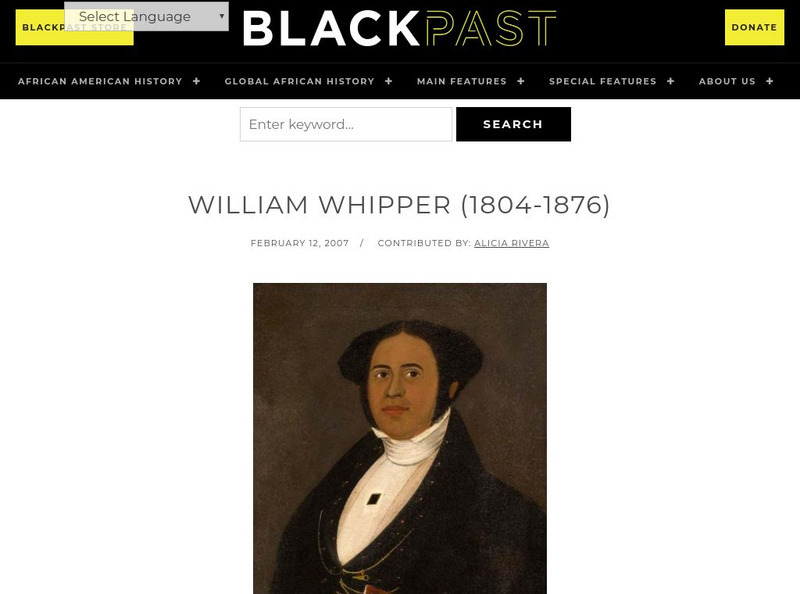Curated OER
African American Women Before and After the Civil War: Slavery and Freedom
Students listen to data on African American women in Texas before the Civil War. In this Civil War lesson, students compare and contrast the lives of slave and free women, and discuss case studies, locating areas on a map. Students...
National Humanities Center
National Humanities Center: Toolbox Library: Making of African American Identity: Free Born
A journal, an autobiography, and selections from narratives about the conditions experienced by free-born African Americans in the nineteenth century. They ask such questions as: How did African Americans construct identity in antebellum...
University of South Florida
Lit2 Go: Sojourner Truth: Ain't I a Woman?
Audio [2:26] and text of speech made by Sojourner Truth, Ain't I a Woman? (1851)
University of Nebraska
U. Of Nebraska: Railroads and Making of Modern America: Origins of Segregation
Primary source materials that focus on the segregation of African Americans that took place on the railroads in the 1800s. Content includes newspaper articles, anecdotal accounts, letters, legal cases, etc.
Other
The Growth of Delaware's Antebellum Free African American Community
Learn what it was like to be a free African American in the Wilmington community of Delaware during the 1800s. This article includes information about the types of jobs African Americans had, the property they owned, and the daily...
Library of Congress
Loc: African American Odyssey: Free Blacks in Antebellum Period
A site that chronicles through documents the accomplishments of African-Americans, both slave and free, from colonial times through the Civil War.
National Humanities Center
National Humanities Center: Toolbox Library: Culture of the Common Man: R. Allen & D. Walker
National Humanities Center collection of primary source material includes selection by Richard Allen, Confession of John Joyce, 1808, and excerpts from David Walker's Appeal, 1830. With questions for discussion.
Library of Congress
Loc: Abolition
This site, which is provided for by the Library of Congress, is part of the African American Mosaic. It describes abolition and gives references to books about the topic.
National Endowment for the Humanities
Neh: Edsit Ement: After American Revolution: Free African Americans in the North
In this lesson plan, middle schoolers will consider "After the American Revolution: Free African Americans in the North." The plan includes worksheets and other student materials that can be found under the resource tab.
National Endowment for the Humanities
Neh: Edsit Ement: African American Communities in the North Before the Civil War
In this lesson plan, students will consider "African-American Communities in the North Before the Civil War." The plan includes worksheets and other student materials that can be found under the resource tab.
National Endowment for the Humanities
Neh: Edsit Ement: David Walker vs John Day: Two Nineteenth Century Free Black Men
In this lesson plan, young scholars will consider "David Walker vs. John Day: Two Nineteenth-Century Free Black Men." The plan includes worksheets and other student materials that can be found under the resource tab.
Independence Hall Association
U.s. History: African American Abolitionists
Read about three African-American abolitionists who worked alone and in concert with white abolitionists. The most radical was David Walker, who was the founder of radical abolitionism.
Independence Hall Association
U.s. History: Free (?) African Americans
Not all African-Americans were slaves in the South. Some were freed by their owners, others escaped, but none had the same rights as free whites. Read about their restrictions that were put into law. Find out about the church...
Other
The Spread of u.s. Slavery, 1790 1860
Presents population maps of enslaved and free African Americans before the Civil War based on census population.
Black Past
Black Past: Whipper, William
A brief encyclopedia article about William Whipper, businessman and abolitionist.
Independence Hall Association
U.s. History: Free African Americans in the Colonial Era
Read about the ways some slaves gained their freedom and where they often lived once free.

















